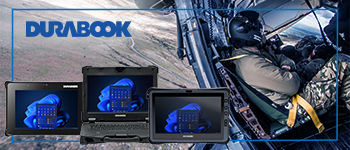Canine guardians
James Fee explores the multifaceted ways in which dogs can be harnessed for security
Detection dogs possess an uncanny sense of smell, capable of detecting even the faintest of scents. This innate ability has led to their use in detecting contraband substances such as drugs and explosives at airports, border crossings and events. Their accuracy in identifying hidden threats has proven to be a game-changer in preventing the transportation of dangerous materials.
Detection dogs at airports, for example, are extensively trained in explosive detection. Their acute sense of smell allows them to detect even minute traces of explosives that may escape conventional screening methods. These dogs work alongside their handlers to sweep through baggage, cargo and public spaces, identifying potential threats before they pose any danger. In addition to explosives, detection dogs can be trained to detect drugs. This is particularly important in preventing the illegal transportation of drugs. The dogs are adept at sniffing out various substances, aiding law enforcement and security officers in intercepting illicit activities.
Security dogs serve as a visible deterrent to potential threats. The mere presence of a well-trained canine unit can discourage individuals with malicious intentions. These dogs, often German Shepherds or Belgian Malinois, are trained in patrol techniques to apprehend intruders and provide an additional layer of security.
In situations where large crowds gather, maintaining order and security can be challenging. An accredited trained canine can help manage crowds by its mere presence and deescalate potentially volatile situations as well as deter unruly behaviour. From arenas to airports, these places can be hectic, especially during peak travel times. Security dogs assist in maintaining order by providing crowd control assistance. Their presence can help calm crowds and ensure a smoother flow of passengers through security checkpoints.
While not directly related to security threats, search and rescue dogs can also be used to locate missing persons or respond to emergency situations. They are trained to locate individuals in large and complex environments, making them incredibly valuable assets in times of crisis.
Furthermore, security dogs form strong bonds with their handlers and are trained to protect them if necessary. This adds an extra layer of security for personnel, ensuring that the human-canine team can effectively respond to any security incident. Protection dogs have an inherent protective instinct that can be harnessed in security patrol and surveillance. Trained dogs can accompany security personnel, patrolling large areas, and providing an added layer of deterrence against potential intruders or criminals. Their acute senses act as an early warning system, alerting handlers to suspicious activities.
Security dogs undergo rigorous training programmes conducted by experienced handlers and trainers. These focus on honing dogs’ natural instincts and developing specific skills related to their designated roles. Additionally, both the dogs and their handlers must undergo regular certification processes to ensure their effectiveness and adherence to established standards. In security roles, dogs are trained in different disciplines to protect or search to deter threats. Our canines are used by security professionals and are trained to engage threats while avoiding unnecessary harm to individuals following the British standard BS8517- 1 or 2.
Dogs’ sense of smell and hearing far surpass human capabilities. As a force multiplier one dog can replace four patrolling security officers. Their ability to detect hidden or concealed items, as well as sense changes in the environment, gives them a unique edge in security operations making them exceptional at detecting threats that may go unnoticed by humans or conventional security systems.
Dogs are agile and quick, making them ideal for rapid response situations. They can quickly cover ground, navigate challenging terrain and adapt to changing circumstances, which is critical in dynamic security scenarios.
The effectiveness of canine patrols lies not only in their capabilities, but also in the careful consideration of their appearance and interactions with the public – there is an importance of striking a balance between visual deterrence and public comfort. Security professionals are tasked with selecting from recognised canine breeds and outfits for their handlers to match the context of their patrol environments. Canine security is highly effective in monitoring and patrolling large sites and expansive areas, such as industrial complexes, warehouses and open spaces. The enhanced mobility and senses of trained canines enable them to cover large grounds efficiently.
Situations that pose a significant threat to security officers demand specialised measures. Canine security excels in providing immediate response and deterrence in scenarios where the risk to officers is elevated as a force multiplier.
Properties with intricate layouts, multiple access points and hidden spaces can be challenging to secure with traditional methods. Canine security offers an advantage in navigating such complex environments. Canines are adept at detecting and apprehending intruders, making them a valuable asset in preventing unauthorised access.
When security officer teams are outnumbered, deploying an equivalent number of officers may be cost-prohibitive. Canines can fill this gap by covering more ground efficiently and reducing the need for excessive human personnel.
The success of canine patrols relies on the right handler-dog partnership. Dog handlers require specific qualities, including the right disposition, physical stamina and the ability to interact positively with the public. The handlers are not just responsible for the dogs’ training and deployment, but also their overall well-being – including healthcare needs. This partnership offers unique opportunities for growth and job enrichment within security teams, as officers can expand their skill set while contributing to enhanced security measures.
FRG has had great success with using dogs in the field. One area dogs excel is the removal and prevention of unauthorised encampments. From vacant property to supermarket car parks, to open land, dogs can have an immediate impact on helping with the eviction process. The presence of dogs often deescalates any potential violence and is much more effective than lone human officers. Dogs can also help stop more trespassers gaining access to sites or entering any vulnerable buildings to claim squatters’ rights, blockading access points and also play an important role in protecting the public.
It is also important to keep dogs onsite for a period after trespassers have left as newly vacated sites are extremely vulnerable to re-occupation, as those setting up unauthorised camps look for new locations and often return to where they have recently been evicted. FRG’s site risk assessment advises on what protection level is required to ensure sites are fully protected to minimise the threat from re-occupation.
Technology and dogs also work hand in hand, with CCTV and dogs complementing each other. On smaller sites, CCTV cameras can detect intrusions and control rooms can then deploy dogs to investigate and locate the intruder. On larger sites, CCTV and dog teams are often both deployed together to provide an instant response to all incidents, and ensuring sites remain secure.
Other examples where we have had success in using dogs include stopping an illegal rave which could have resulted in around £100,000 of damage. FRG was contracted to secure approximately 40,000 square feet of vacant office and warehouse space situated within a small industrial estate. Squatters successfully infiltrated the primary building and laid claim to certain portions of the property, asserting squatter’s rights. It was suspected that they intended to host an illegal rave on the premises. CCTV detected the intrusion and swift action coupled with an in-depth understanding of the legal framework around squatters rights allowed both FRG and the managing agents to regain control of the site mere hours after the squatters’ arrival, securing entry points and then using dogs to help remove the squatters, ensuring no harm befell the structure., Had the illegal rave transpired, the ensuing damage and subsequent cleanup could have triggered a very large insurance claim.
FRG is committed to leading industry best practice and only employs SIA-licensed and accredited dog handlers to control standards and ensure animal welfare in canine security. This is not the case for all security companies. In one instance, FRG was called to assist at a property where security services on-site were originally provided by another supplier, consisting of one dog handler unit. Trespassers breached the premises, causing damage and posing a significant risk of fly-tipping. FRG was contacted late at night by the site insurer who expressed concerns regarding the impact of the unauthorised encampment and questioned the incumbent security provider’s ability to handle the situation effectively. Within a span of two hours, FRG deployed dog handler teams to the site, executing a comprehensive sweep. The incumbent security provider’s on-site dog handler showed they were not following guidelines or looking out for the health of the dog as it was off lead and therefore not under control. The dog was in a physically compromised state and unfit for duty, and the handler lacked the necessary SIA licence and was not wearing a uniform.
In conclusion, in the realm of security, dogs have proven time and again that their innate qualities, coupled with thorough training, can significantly enhance protective measures across the security sector. From detecting threats and contraband to providing support, their role is unparalleled. The sensory superiority, non-intrusive nature, rapid response, adaptability and cost-effectiveness of canine security make them indispensable assets. Our experience is that dogs provide an invaluable edge in security from evictions to intruder detection to removal of trespassers. It’s essential to recognise the irreplaceable qualities that dogs bring to security operations, forging a harmonious partnership between humans and the innate abilities of our loyal four-legged companions.
James Fee is Director at First Response Group, a provider of integrated security and facilities services, both permanent and temporary, to public and private sector clients across the UK. Its solutions range from Security Personnel, CCTV and Access Control to Facilities Management and vacant property protection.









